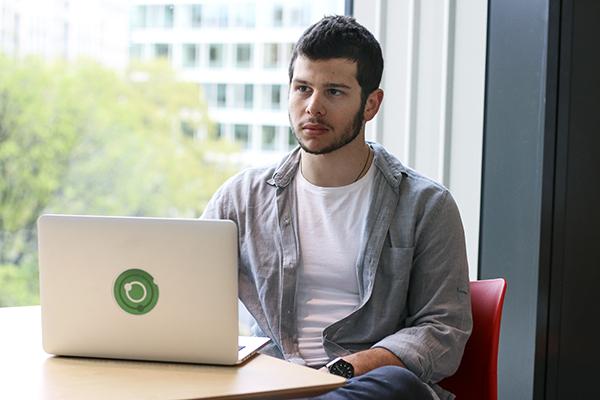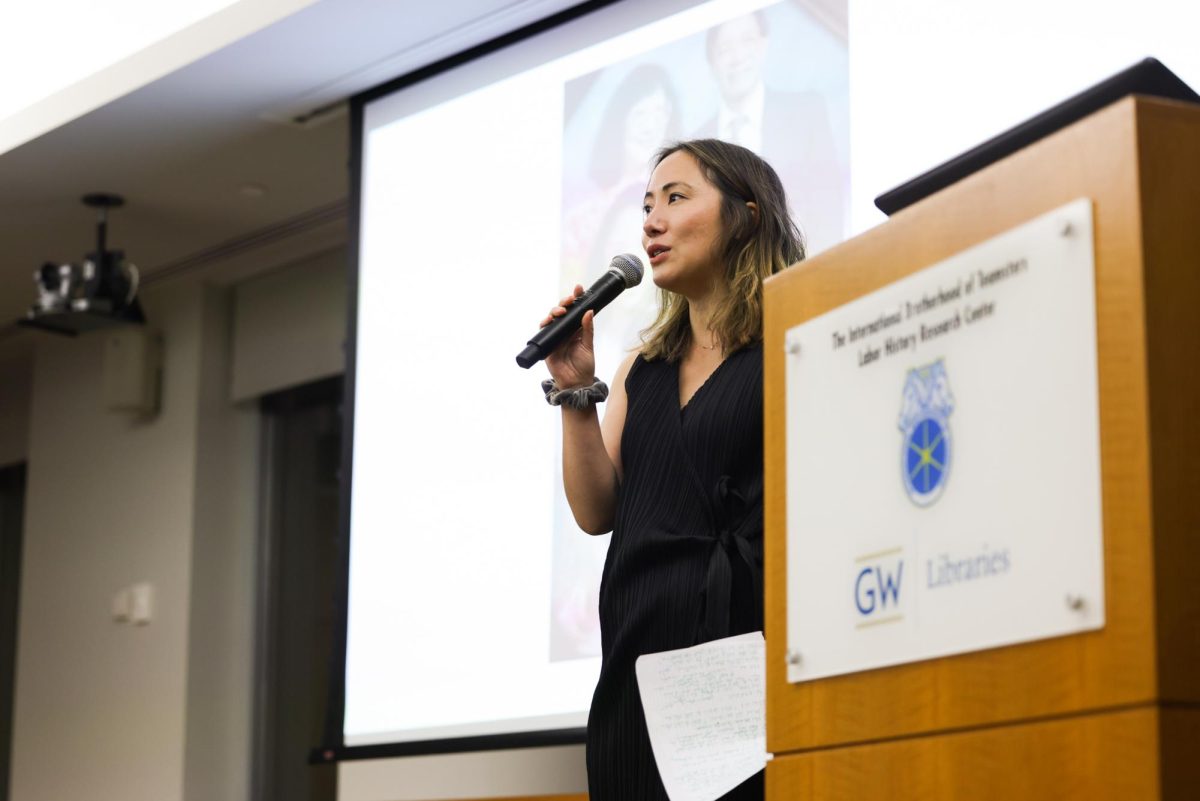For one sophomore, pulling an all-nighter means monitoring servers and video chatting coders in India.
International business major Eytan Nahmiyas, along with his childhood friend and cousin, launched a location tracking iPhone app called Radius last week, which allows users to see when their friends are within 500 feet. Each user’s profile image appears in a bubble on a map, which helps them see if their friends are close by and makes it easier to schedule plans, Nahmiyas said.
Nahmiyas thought of the idea for the app last year as he was adjusting to life at GW and trying to connect with his new friends. The app already has about 500 users, according to its Facebook page.
“I was eating at J Street all alone, the sad college kid hoping one of my friends would come around,” he said. “I said, ‘I wish there was a way to contact them without texting each and every one of them.’”
He said what sets Radius apart from other location-based apps, like Foursquare, is increased privacy options. Users can add or block whichever friends they want and only receive notifications about the people they choose without those people knowing.
He began working on a plan for the app during his first semester, before flying home to Istanbul, Turkey for winter break where he learned that his childhood friend had been trying to develop a similar program. The two decided to collaborate and then asked Nahmiyas’ cousin to join them.
The three students pooled their personal savings, which added up to about $3,500, to outsource technical development of the program to amateur coders in India. Over the next year, Nahmiyas said working with the coders was like being in a long-distance relationship.
“At 2 a.m., we would get on Skype [in] our boxers and start talking,” he said. “It was like cooking a cake, but on the phone, so you had to tell them every single thing, like ‘This is how you crack open an egg.’”
Tali Salhon, Nahmiyas’ cousin and a sophomore at Georgetown University, said the first version was a “failure” and didn’t work properly.
The partners had exhausted their money for the project and began looking for funding from dozens of Turkish venture capitalists, who criticized everything from the design and technical details to the lack of a user base and revenue model.
“A lot of venture capitalists weren’t attracted to us because we were three 19-year-olds working from our dorm rooms,” Salhon said.
Eventually, they collected enough money from family and friends to hire lawyers and professional coders, who made some of the changes that investors had suggested. Salhon and Nahmiyas declined to say how much money they raised.
Nahmiyas said the app is not yet bringing in much revenue, but said investors have become more interested since its launch. He said once he graduates, he wants to expand by setting up an office, hiring employees and creating a version for Android phone users.
“For the first time, there’s something I did that has this big potential. My partners and I are all on this, so no one’s slacking,” Nahmiyas said.
When not buying new servers or meeting with investors, Nahmiyas said he is often reading business books and magazines or boxing to blow off steam. He said sleeping only four hours a night helps him balance a full-time startup with his classes and social life.
“There are no limits, you can’t just say, ‘Oh, I worked five hours today,’” he said. “It’s never enough. If I wasn’t stressed, it meant that things aren’t going well.”






